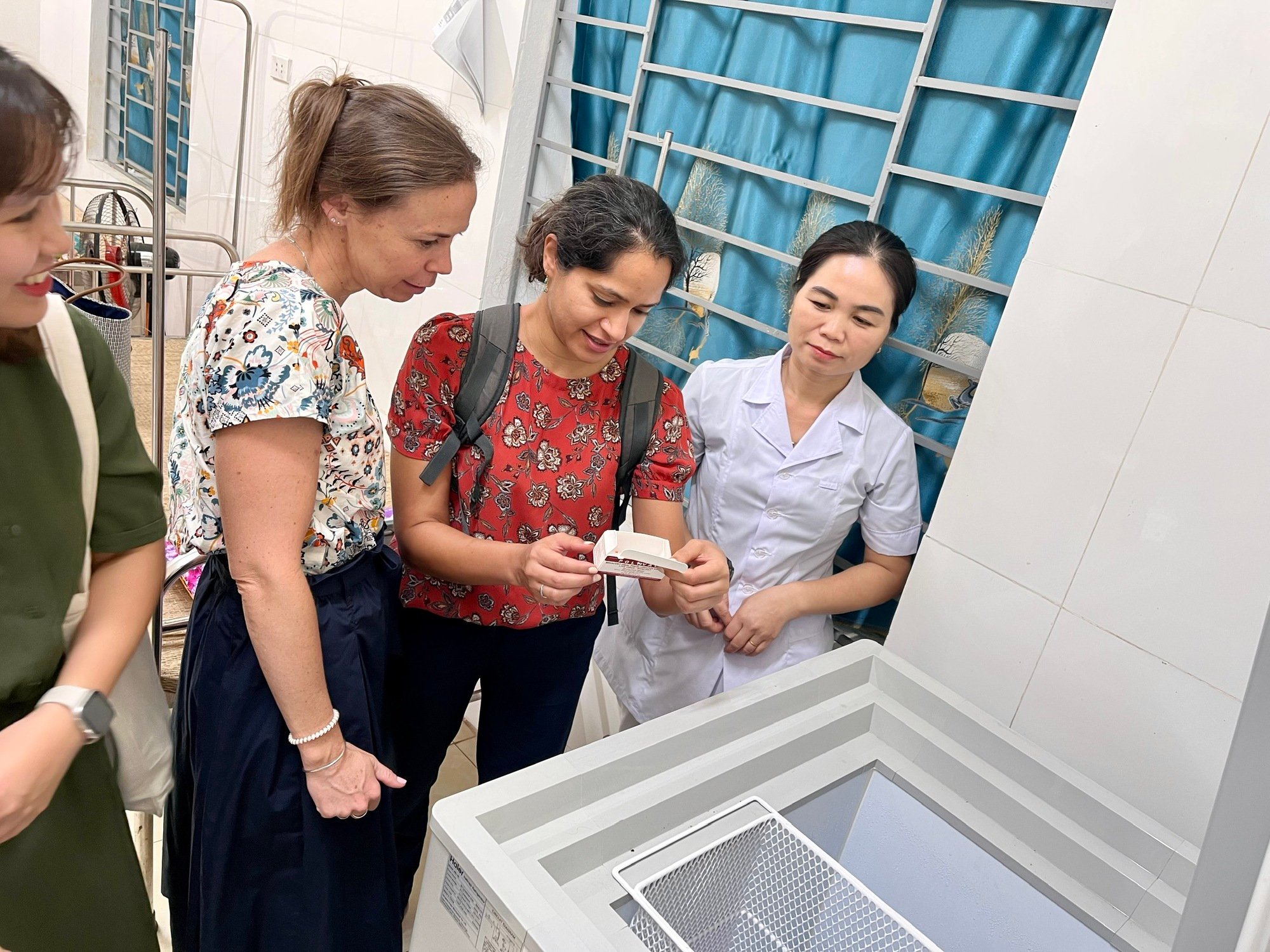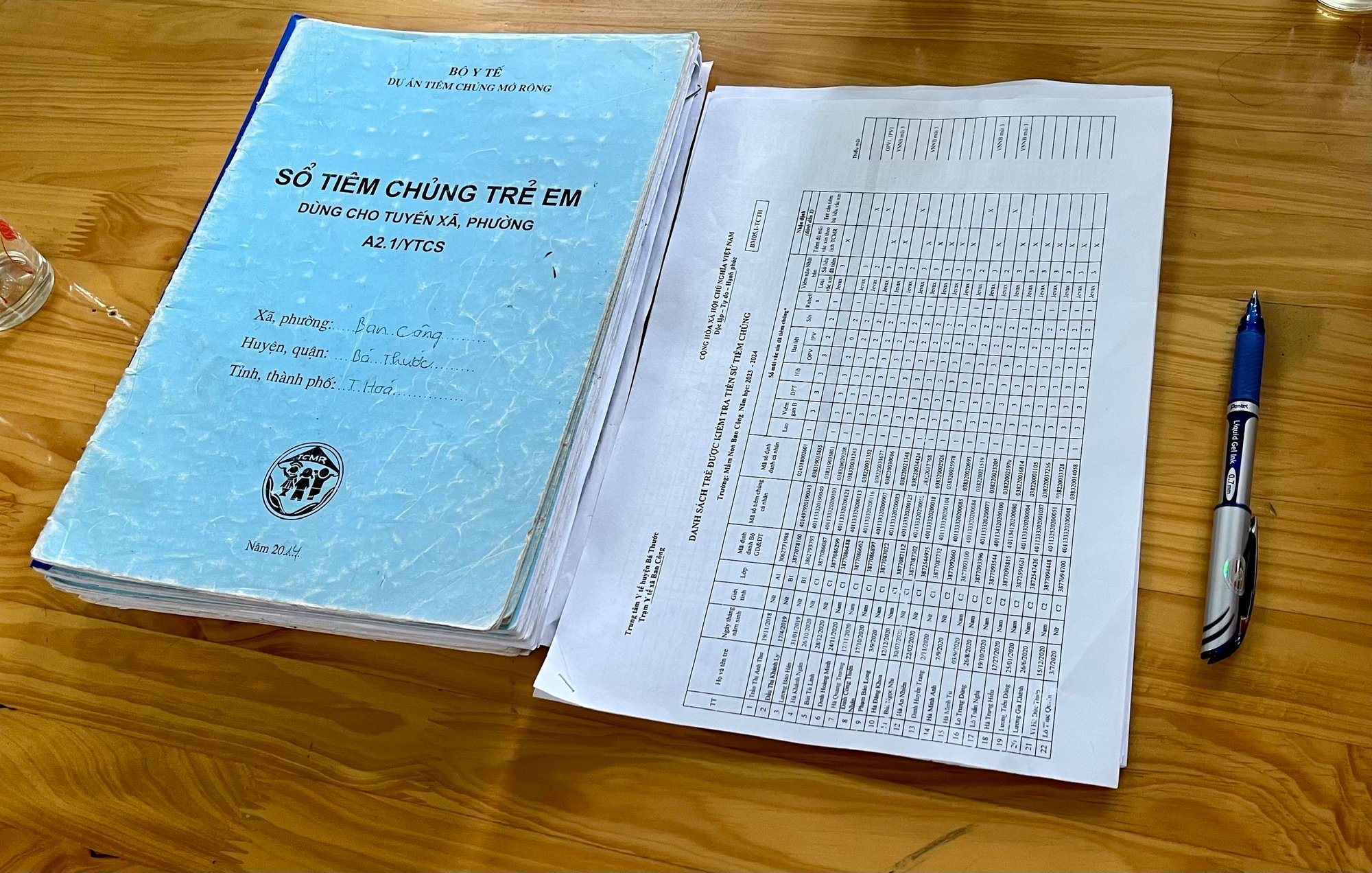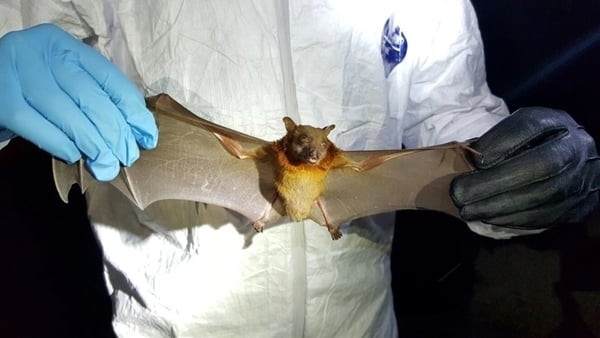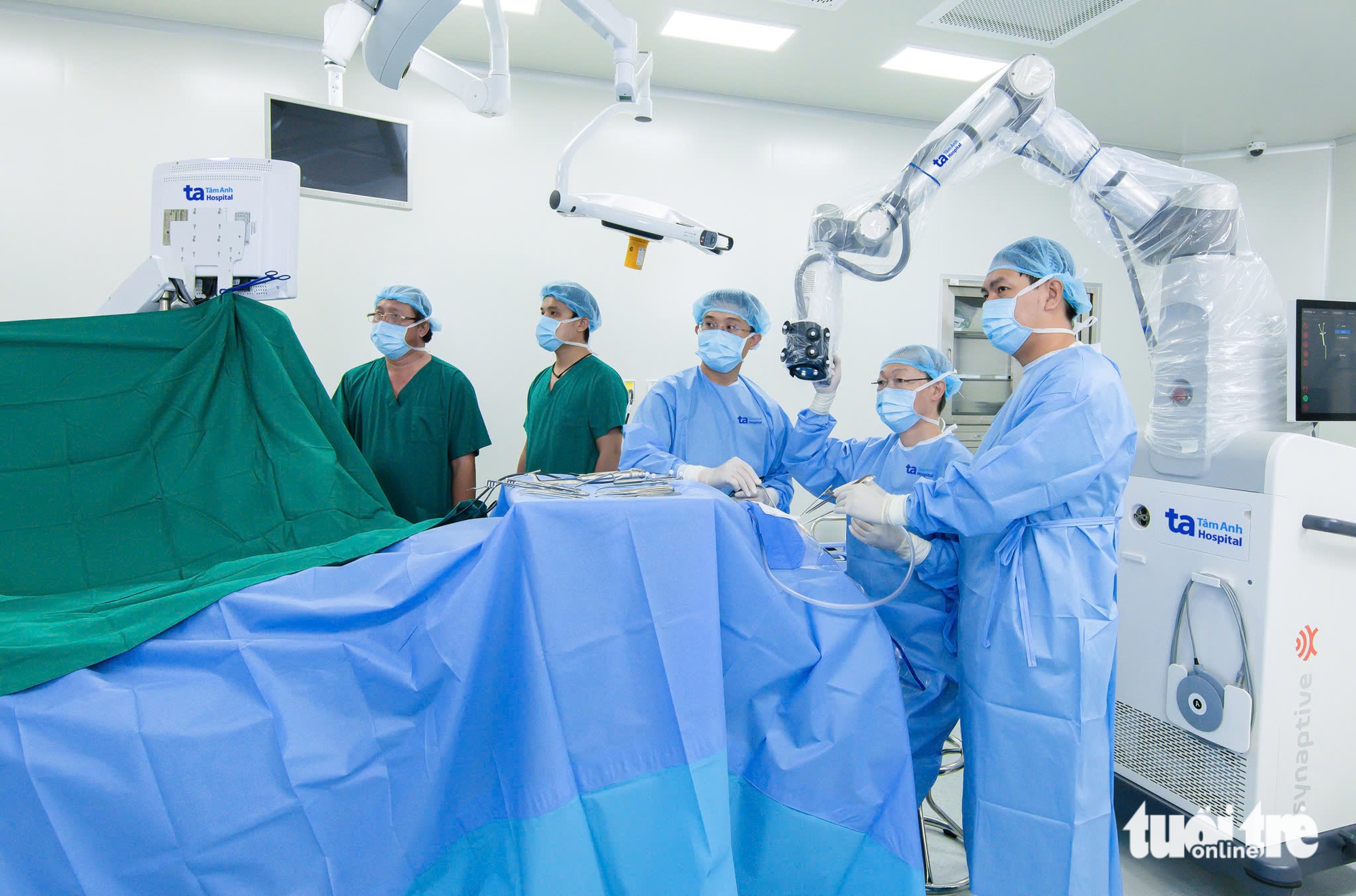According to Associate Professor - Dr. Duong Thi Hong, Deputy Director of the National Institute of Hygiene and Epidemiology (Ministry of Health), there are currently 12 free vaccines for children in the expanded immunization program.
After many months of vaccine shortages, especially with the "5 in 1" vaccine (diphtheria, whooping cough, tetanus, hepatitis B and pneumonia, meningitis caused by Hib bacteria), from January 2024, localities will deploy this vaccine for young children. The vaccine source, funded by the Australian Government, has been allocated to localities by the National Institute of Hygiene and Epidemiology.

Immunization experts from the US Centers for Disease Control and Prevention assess the storage conditions for expanded immunization vaccines at the Ban Cong Commune Health Station (Ba Thuoc District, Thanh Hoa).
According to Associate Professor Hong, every year, 95% of children are fully vaccinated. However, due to Covid-19 and a shortage of some vaccines, the rate of full vaccination of some vaccines will decrease in 2023. Children who are not fully vaccinated are at increased risk of some infectious diseases in the coming time.
An immunization expert estimates that even if the expanded immunization program fully meets the target (95% of children in the expanded immunization program are fully vaccinated), every year there are still about 5% (50,000 - 60,000) children who are not fully vaccinated, which is a gap in community immunity.
In addition, some diseases such as polio are at risk of entering the country as some countries continue to report outbreaks and epidemics of polio, including the emergence of genetically modified polio viruses derived from vaccines.
According to the epidemic surveillance system, some northern provinces have recorded diphtheria outbreaks, including children with severe complications. In Hanoi, there have been cases of children with whooping cough. These are infectious diseases transmitted through the respiratory tract that are easily spread during the winter and spring seasons.
Faced with the risk of infectious diseases returning due to inadequate vaccination, the Ministry of Health and the Ministry of Education and Training are urgently implementing medical history checks and catch-up vaccinations for children entering preschools and primary schools.
Prevent outbreaks in schools

Fully vaccinate preschool and primary school children to prevent diseases in young children
To protect children, prevent dangerous infectious diseases, and avoid the risk of outbreaks in schools, especially in the immediate future, winter-spring diseases that are highly contagious and easily break out such as whooping cough, measles, and rubella, the National Expanded Immunization Program in coordination with the Department of Health and the Department of Education and Training of provinces and cities are reviewing the vaccination history of children entering preschool and primary school.
Schools receive information from parents to determine which shots their children are missing or have not received in full. Through this, local health departments can estimate vaccine needs and plan to provide catch-up shots for children entering preschool and primary school.
Currently, experts are paying special attention to injecting some vaccines to prevent and control epidemics in winter and spring such as whooping cough, diphtheria, measles, rubella and other epidemic diseases such as Japanese encephalitis and polio.
At the same time, the health system also strengthens surveillance of diseases in the expanded immunization program such as surveillance of measles, rubella, polio, diphtheria, whooping cough, and neonatal tetanus to promptly provide recommendations and guidance on vaccination.
Not getting enough vaccines makes children not have full immunity, making them susceptible to disease. In addition, the durability of antibodies depends on the nature of the vaccine, production technology, the body's response ability... Meanwhile, the immunity created by vaccines can gradually decrease over time, until at some point the body is no longer strong enough to fight off the attack of pathogens.
Therefore, the injection of catch-up and booster shots ensures that children are fully vaccinated, strengthens immunity, and improves protection. When children are protected, the risk of outbreaks or epidemics in schools will be avoided.
Source link











































Comment (0)